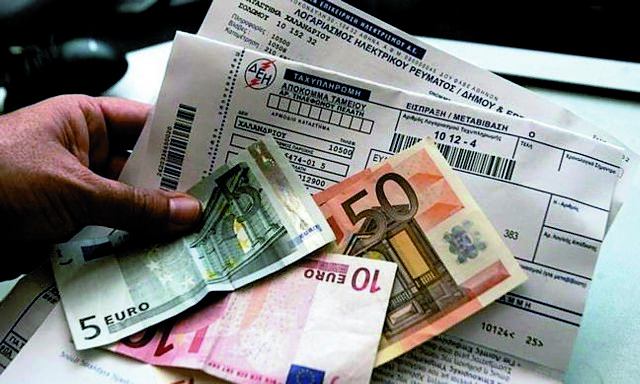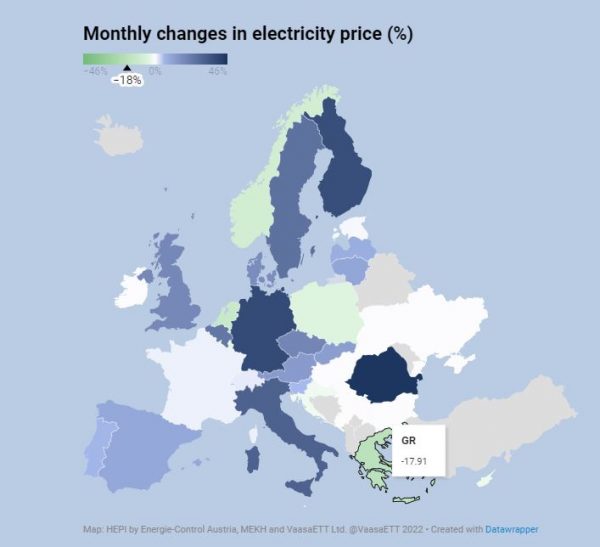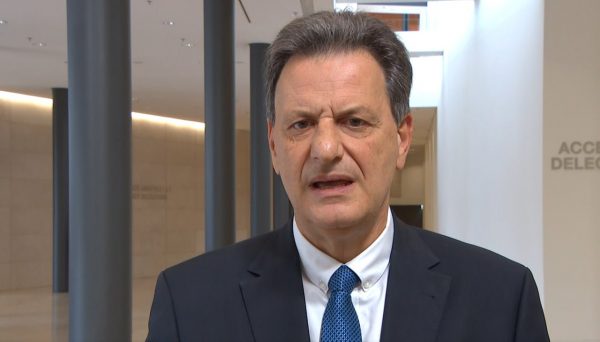
Much of the electricity price hikes have been avoided by consumers, with subsidies starting last September and – according to assurances by Environment and Energy Minister Costas Skrekas, they will be maintained for as long as the energy crisis lasts.
During a period when prices are shaping both internationally and in our country at record highs, the introduction of subsidies has resulted in, among other things, Greece being, last month, one of the three EU countries where the final, real prices consumption for electricity decreased compared to December, while in other countries they increased. 
Specifically, according to data from the Energy Exchange, government announcements on the subsidy of electricity bills and the monthly survey on electricity retail prices in 33 European countries conducted by the energy regulators of Austria and Hungary (https: //www.energypriceindex.com/), the image for the values is as follows:
-In Greece (Athens) the average price of electricity including taxes in January was 18.51 cents per kilowatt hour (185.1 euros per megawatt hour), compared to 26.07 cents per kilowatt hour which was the EU-27 average . The most expensive EU countries are Germany (50.07 cents / kwh), Denmark (46.69) and Belgium (45.87 cents / kwh).
-In the same month, in January, the wholesale price of electricity in Greece was 227.3 euros per megawatt hour. The fact that the retail is at levels lower than the wholesale price, is due to the subsidies applied in the last six months and as everything shows, they will continue in the next period.
-In January the average price of electricity in the EU increased to 26.07 cents / kilowatt hour from 23.44 cents in December. In Greece, on the other hand, the average price decreased to 18.51 cents, from 22.55 cents / kilowatt hour in December. Prices fell in Greece, the Netherlands and Norway while rising in all other countries. The largest increases were in Romania (46%) and Germany (38%).
The decrease in prices last month does not mean that they have returned to reasonable levels, but they remain at a record point, which explains the need to maintain state subsidies. An additional PPC official said last week that the current price levels are not sustainable for the majority of consumers and for this reason – he added – the company will continue the policy of discounts, in addition to subsidies provided by the State.
Latest News

DM Dendias: We talk With Turkey But We Always Bring Up Their Unacceptable Positions
Second and last day of closely watched conference, entitled 'Metapolitefsi 1974-2024: 50 Years of Greek Foreign Policy', also included appearances by PM Mitsotakis, Ex-PM Tsipras and PASOK leader Nikos Androulakis, among others

Rhodes Airport Tops Fraport Greece’s Regional Airports in 2024 Performance
According to Fraport's data, more than 35 million passengers (specifically 35.2 million) were handled by Fraport-managed airports during the 11 months.

European Central Bank Cuts Interest Rates by 25 Basis Points
It is the fourth cut of interest rates by Europe’s central bank, a move expected by the markets and financial analysts leading to the rate settling at 3%.

Airbnb: New Measures Add €600 in Extra Costs for Property Owners
Property managers face an immediate administrative fine of 5,000 euros if access to the inspected property is denied or any of the specified requirements are not met.

Economist: Greece Included in the Best Performing Economies in 2024
Meanwhile, Northern European countries disappoint, with sluggish performances from the United Kingdom and Germany.

EasyJet Expands Its Routes from Athens
The airline’s two new routes will be to London Luton and Alicante and they will commence in summer 2025.

Capital Link Forum Highlights Greece’s Economic Resurgence; Honors BoG Gov Stournaras
Capital Link Hellenic Leadership Award recipient, Bank of Greece Gov. Yannis Stournaras, an ex-FinMin, was lauded for his pivotal role during Greece’s economic recovery

Tourist Spending in Greece Up by 14%, Visa Card Analysis Shows
Greece’s capital Athens emerged as the most popular destination, recording a 17% increase in transactions with Visa cards, surpassing even the cosmopolitan island of Mykonos.

Inflation in Greece Unchanged at 2.4% in Nov. 2024
The general consumer price index (CPI) posted a 0.4% decrease in November compared to the previous month

2024 Christmas Holidays: Extended Shop Hours Schedule
The 2024 Christmas Holidays extended shop hours schedule commences on Thursday, December 12 and runs until the end of the year.


![Φυσικό αέριο: Δυναμικό come back του LNG στην Ελλάδα [γραφήματα]](https://www.ot.gr/wp-content/uploads/2023/01/OT_naturalgas-90x90.jpeg)












![Fraport: Πάνω από 35 εκατ. επιβάτες στα αεροδρόμια το 11μηνο – Πτώση στη Μύκονο [πίνακας]](https://www.ot.gr/wp-content/uploads/2022/06/fraport-90x90.jpg)


























 Αριθμός Πιστοποίησης Μ.Η.Τ.232433
Αριθμός Πιστοποίησης Μ.Η.Τ.232433